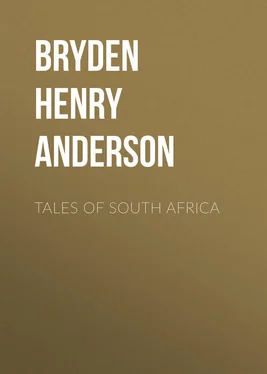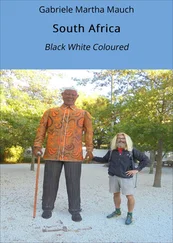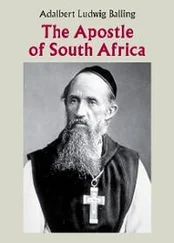Henry Bryden - Tales of South Africa
Здесь есть возможность читать онлайн «Henry Bryden - Tales of South Africa» — ознакомительный отрывок электронной книги совершенно бесплатно, а после прочтения отрывка купить полную версию. В некоторых случаях можно слушать аудио, скачать через торрент в формате fb2 и присутствует краткое содержание. Жанр: foreign_antique, foreign_prose, foreign_language, на английском языке. Описание произведения, (предисловие) а так же отзывы посетителей доступны на портале библиотеки ЛибКат.
- Название:Tales of South Africa
- Автор:
- Жанр:
- Год:неизвестен
- ISBN:нет данных
- Рейтинг книги:4 / 5. Голосов: 1
-
Избранное:Добавить в избранное
- Отзывы:
-
Ваша оценка:
- 80
- 1
- 2
- 3
- 4
- 5
Tales of South Africa: краткое содержание, описание и аннотация
Предлагаем к чтению аннотацию, описание, краткое содержание или предисловие (зависит от того, что написал сам автор книги «Tales of South Africa»). Если вы не нашли необходимую информацию о книге — напишите в комментариях, мы постараемся отыскать её.
Tales of South Africa — читать онлайн ознакомительный отрывок
Ниже представлен текст книги, разбитый по страницам. Система сохранения места последней прочитанной страницы, позволяет с удобством читать онлайн бесплатно книгу «Tales of South Africa», без необходимости каждый раз заново искать на чём Вы остановились. Поставьте закладку, и сможете в любой момент перейти на страницу, на которой закончили чтение.
Интервал:
Закладка:
Sinikwe, meanwhile, has been having an easy time, preparing a fresh supply of snuff against his coming spooring operations and the feast that is to follow. Out of the dead fire he has extracted some ash from a particular sort of bush which he put in last night. This he works down to the finest possible consistency. Taking from a leather pouch a tiny piece of tobacco – the precious gift of a Lake trader – he cuts off a piece, and in turn reduces that to fine dust by means of flat stones. Then carefully mingling the ashes and the tobacco dust, and again grinding them down together, his snuff is made. With this prized commodity he can refresh his jaded senses upon a difficult spoor, titillate his nerves after a big gorge of flesh, and purchase the pleased glances of his wife when in his bounty he shall deign to bestow a pinch or two upon her. Besides his snuff-making, an operation demanding the gravest care, Sinikwe has sharpened up the blade of his only spear, at once his weapon of defence, carver and skinning-knife, to the haft of which he has fastened his skin cloak and a small calabash of water in preparation for the journey before him. He has sharpened, too, his primitive hatchet, used for chopping bones and extracting marrow. That hatchet – the head of iron, the haft of rhinoceros horn – is Sinikwe’s most treasured possession. His father acquired it long since, at infinite cost of feathers and ivory from the Bechuana who fashioned it.
Presently Nakeesa comes in, and the roots – curious little smooth bulbs, sweet and nutty to the taste – are divided, three-fourths to Sinikwe, one-fourth to Nakeesa. These bulbs are bestowed in thin transparent crops taken from dead guinea-fowls, which are now softened in water for the purpose. A skewer of wood is run throughout several; in half an hour the sun has again dried these curious receptacles, and the Bushman’s bread supply is complete. Taking his lion’s share of the food, and munching a few bulbs before he departs, Sinikwe now exchanges with his wife a few sentences in that curious, whining, inarticulate form of speech peculiar to the Bushman, every passage of it as full of clicks as tongue, throat, teeth, and palate can make it; shoulders his belongings, and sets off briskly upon the spoor of the wounded giraffe.
Nakeesa is to follow him at leisure; she will, you may swear, be up at the carcase long before Sinikwe has made much havoc with it. But she has to carry more water and the child, and will take her own time. She devours a few bulbs and then goes to the water-pit. At present there is no water there, only some moist sand in a deep hollow. But Nakeesa knows what she is about. To the end of a hollow reed she has fastened a tuft of grass. This she inserts into the damp hole which she scoops from the sand. Then she kneads sand round the base of her rude pump and over the tuft of grass and sucks. Little by little the water thus collected reaches and fills her mouth, from which it is discharged, by means of a thick stalk of desert grass, into an ostrich shell. It is hard work and slow, but in two hours Nakeesa has filled her three remaining ostrich shells. These and some others, the holes of which are all carefully sealed with grass, she bestows in a rude net of fibre.
With this load, together with a calabash of water, her babe, her larder and household gear (the bulbs, a steinbok skin, and the tortoiseshell), she sets off on her way towards that banquet of giraffe flesh for which her soul now pines. It is a long, long journey, but she has no trouble whatever in following Sinikwe’s spoor. She traces it to the spot where the Masarwa set off upon the tracks of the wounded cow, and then, mile after mile through the desert, she deciphers easily the familiar tale that slowly the earth unfolds to her. The giraffe is strong and lusty, and the poison takes long to do its work upon so huge a frame.
Nakeesa toils on doggedly with her load. She sleeps the first night (she started in the afternoon) in a belt of Mopani forest. At earliest dawn, as soon as she can see spoor, she is away again steadily trudging. It is weary work. The white glare of the sun upon the light calcareous sand, through which she ploughs all morning, is trying enough; yet infinitely more distressing is it when she crosses the four miles of a vast salt pan. The blinding glare thrown up from the flat white surface of the pan makes even the seasoned eyes of a Bushwoman throb and smart, and the heat is terrible.
There is a gleam of satisfaction even upon the salt pan, however. Nakeesa sees plainly enough by the spoor that the giraffe cow is in sore trouble. Here she has reeled, there spurned the smooth white sand as she starts off again at speed, galled into frenzy by the poison that now runs riot through her veins. And ever, like bloodhound upon a trail, run the footprints of Sinikwe side by side with the giraffe spoor. Nakeesa sees that he has put on his hide sandals, so burning is the glittering white sand. So plain is the tale to her eyes that Nakeesa knows now surely enough that to-morrow by noon she will rest by the dead carcase.
In the hottest hour of afternoon, as she mounts with a sense of relief the further edge of the great salt pan, Nakeesa sees a figure coming towards her. Who can it be? Not Sinikwe, certainly. In five minutes her old lover, Kwaneet, stands before her. They squat them down beneath a solitary Mopani tree, whose bifid, butterfly-like leaves (now parched and shrivelled), turned ever edgewise to the sun, afford them the scantiest shade, and exchange greeting. Kwaneet takes a little – a very little – of the precious snuff from the cartridge case at his neck, and offers his friend a pinch from the palm of his hand. With a gratitude almost too great for words Nakeesa takes and enjoys the precious stuff. What a relief! No dainty cup of afternoon tea was ever so grateful to fashionable dame as that pinch of snuff to the weary Masarwa woman. Her eyes sparkle a little, she plucks up energy again.
“So, Kwaneet!” she says. “Have you had water? Whence come you?”
“There is no water,” replies the Masarwa. “I am eaten up by the sun. Two mornings agone I drank a little. I go to Makwa, where there may be yet a little. And I shall there hunt for hartebeest-skins against the coming of Khama’s headmen. What news have you, Nakeesa? I saw the print of Sinikwe’s sandal yonder, following the Ng’habe,” (giraffe), “and so came on this way, knowing I should meet you. How goes life with you?”
“There is no news,” returned Nakeesa. “I heard some lies only from the Bakalahari at Bachukuru fountain. Khama’s men are hunting in Mababi. As for me and my babe, we starve. Sinikwe has done no hunting till yesterday for moons past. Better had it been if thou hadst been my man, Kwaneet!”
“Come with me now, Nakeesa,” replied Kwaneet. “I will find thee meat. We will go far,” (pointing north) “and defy Sinikwe.”
“Nay, I dare not,” answered Nakeesa. “Sinikwe would follow and slay us in our sleep. I dare not. Be patient. Something may happen. Our life is short, and has many dangers.”
During this interview Nakeesa had been turning over something in her mind. The snuff and its pleasures quite decided her. She took an ostrich eggshell from her burden, cleared the orifice of grass, and offered water to Kwaneet. The Masarwa drank half the contents of the shell, then returned it to Nakeesa.
“Thanks for the drink; the water is good. But what will Sinikwe say?”
“Oh, that is nothing,” returned the woman. “I spilled the water, did I not? and Sinikwe must do his worst. If he returns this way he will know who had it. I cannot help it. You are my friend – and far more.”
Nakeesa knew there would be trouble about the water. She herself had had but one sip since she started. She dared to take no more. But she knew her risk, and cheerfully accepted it – for Kwaneet’s sake. In ten minutes they parted and went their ways. Bushmen are not a demonstrative folk, and there was little fuss on leave-taking.
Читать дальшеИнтервал:
Закладка:
Похожие книги на «Tales of South Africa»
Представляем Вашему вниманию похожие книги на «Tales of South Africa» списком для выбора. Мы отобрали схожую по названию и смыслу литературу в надежде предоставить читателям больше вариантов отыскать новые, интересные, ещё непрочитанные произведения.
Обсуждение, отзывы о книге «Tales of South Africa» и просто собственные мнения читателей. Оставьте ваши комментарии, напишите, что Вы думаете о произведении, его смысле или главных героях. Укажите что конкретно понравилось, а что нет, и почему Вы так считаете.












